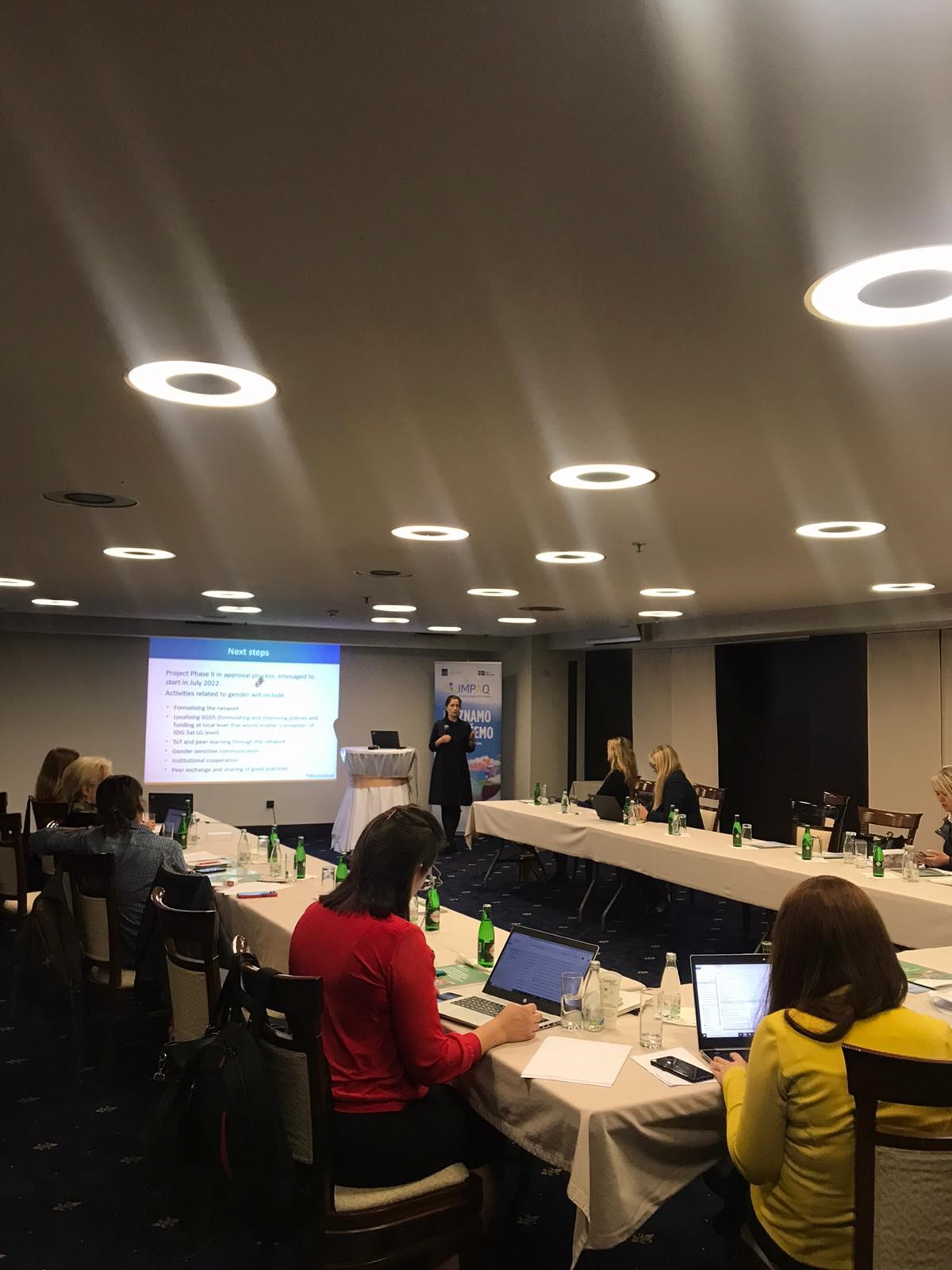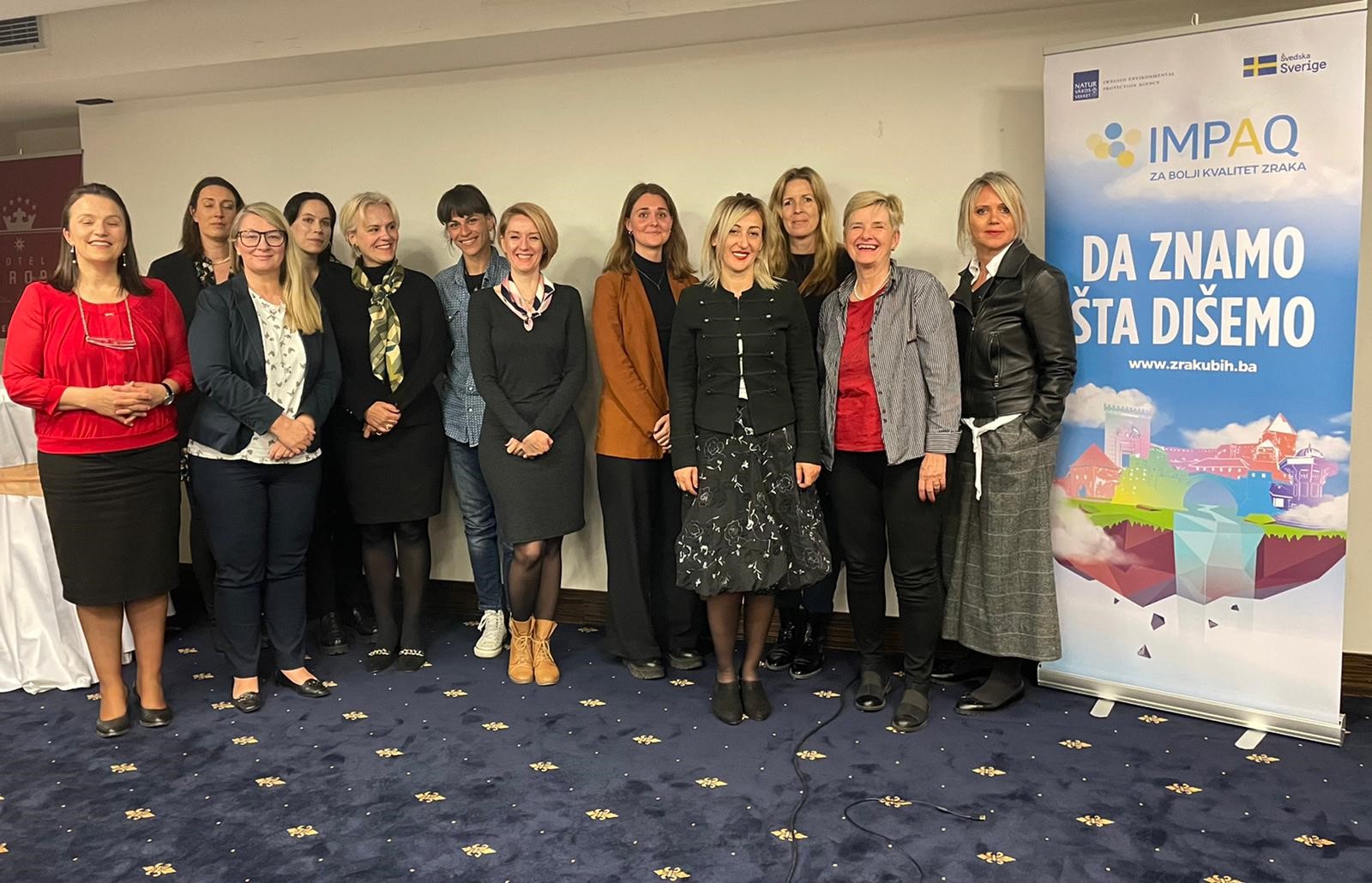Saša Solujić from the Stockholm Environment Institute and member of the BiH ESAP project team presented at a workshop on gender and environment, that took place 29 March 2022 in hotel Europe, in Sarajevo, Bosnia and Herzegovina. The workshop was organized within the “IMPAQ – Improving air quality and air quality management in BiH” project.

In her presentation, she brought forward the key messages from the BiH ESAP brief “Air pollution in Bosnia and Herzegovina: a gender equality, social equity and poverty reduction lens (GESEP)”. The brief was prepared for the project and one of its thematic areas focusing on air pollution. It explains how environmental and GESEP challenges are interlinked, drawing upon examples from the BiH context.
Gender, poverty and social inequity are all intertwined with the environmental problem of air pollution, and there is no exception for this in BiH. Poor people are likely to be more exposed to higher levels of air pollution and further, elderly people and people with health issues or disabilities usually experience higher degrees of energy poverty than the rest of the population. Low-income households tend to use very polluting fuels for warming their homes or for cooking, and drive older polluting cars. This means that they negatively contribute to air pollution. These are just some examples how GESEP is linked with air pollution.
The brief concludes that assessing the distributional impacts of new environmental policies and making opportunities associated with them available to disadvantaged groups is one of the essential steps toward integrating GESEP considerations into environmental policy.
The event further explored the intersection between air pollution and gender equality and provided a platform for the exchange of experiences between civil society organizations. There is a need for stable support to women CSOs, including building a strong network to provide co-benefits for gender and the environment.
Good practices presented relate to the participation of women through the citizens’ assemblies and direct local initiatives, representation of women in the energy sector and transport, as well as the importance of addressing the persistent discrimination against women. There are numerous gender mainstreaming tools that many actors successfully use. Gender mainstreaming of environmental policies, and vice-versa, are key for full implementation of SDG 5, especially at the local level.







